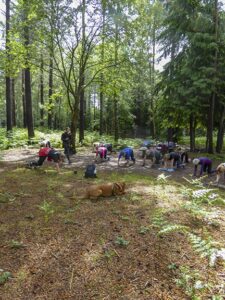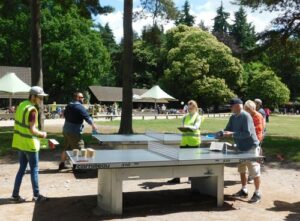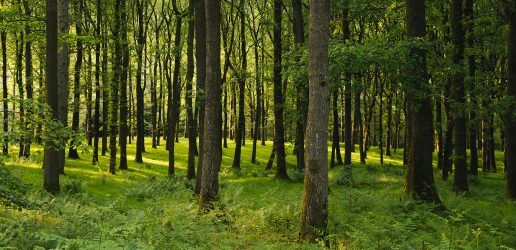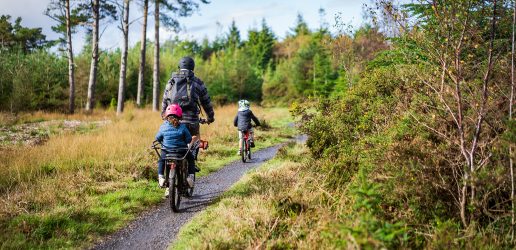With over a third of adults in the UK not meeting the recommended targets for physical activity and the lack of physical activity across the world being declared a global health crisis, there is a demand to understand how to encourage people to become more active, and to support and sustain levels of physical activity.
Recently published research sheds light on the learning gained from the Active Forests Programme in England. It highlights how a targeted programme of physical activity can reach out to and involve a broad range of people from the already physically active, to those who are less active.

The Active Forests programme was developed through a partnership between Forestry England and Sport England and is now running on eighteen forest sites in England. The aim of the programme is to encourage a physical activity habit. Participants can get involved in a wide range of activities from Nordic walking to mountain biking, Pilates, running, and Bootcamp in different scenic forests.
The programme has tapped into rising expectations about the need to keep fit which have risen across the health sector and wider society as a result of a push for healthy lifestyles and ill-health prevention. It has particularly been able to connect with people in varying life transitions which have resulted in them wanting to take more care of themselves.
By creating a range of options aimed at different age groups, with varying abilities and levels of fitness, the programme is able to reach out to people who might not be familiar with accessing and enjoying forest sites and provides the opportunity for them to get involved in a way which suits them and fits with their everyday lives. For some people it has enabled them to try something completely new.
Elements of the programme that encourage, support and help to sustain or change physical activity levels include tailored activities, opportunities to join regular sessions, social connections, providing challenge and opportunities for progression, a supportive atmosphere and a range of wellbeing benefits.

Investment in the forest infrastructure has also been an important part of the programme and has enabled the upgrading of existing trails and the development of new ones. Equipment has also been provided to allow activities new to the forests to take place, for example table tennis and volleyball. By linking with locally trained and knowledgeable instructors, a wide variety of regular weekly activity sessions are facilitated and provide participants with information about how to best exercise or to recover after a health problem.
As in previous studies, the research found that physical activity in attractive forest environments can lead to a range of wellbeing benefits that go beyond the physical, for example participants spoke of benefits relating to mental wellbeing, social interaction, and being outdoors in sensory rich environments. The study also found that some women regard forest sites as places where they are not judged in terms of their physical activity ability and their appearance in ways they felt they would be in a gym environment.
It is possible that this type of approach might be more sustainable in encouraging physical activity in the long term in the forest environment through its combination of new and improved infrastructure and equipment, links to socially shared meanings about healthy and active lifestyles, and instructors and volunteers who can help support participants to become more active and sustain, or even increase, their levels of physical activity.
More information about our evaluation of the Active Forest Programme.

The British Woodlands Survey, 2025, which focuses on resilience launches.

Forest Research has released the results of the Public Opinion of Forestry Survey 2025 for England and the UK, Scotland and Wales.
New research has been published which explores how to enable and encourage access to woodlands for diverse members of the public.

The British Woodlands Survey, 2025, which focuses on resilience launches.

Forest Research has released the results of the Public Opinion of Forestry Survey 2025 for England and the UK, Scotland and Wales.
New research has been published which explores how to enable and encourage access to woodlands for diverse members of the public.